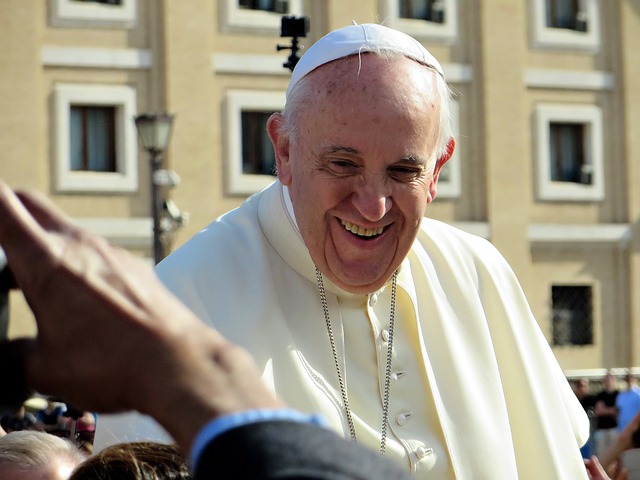POPE FRANCIS EXPLAINS THE PASSAGE OF THE MULTIPLICATION OF THE LOAVES AND FISHES

Dear brothers and sisters, good morning!
The Gospel reading for this Sunday tells the famous episode of the multiplication of the loaves and fishes, with which Jesus satisfies the hunger of nearly five thousand people who had gathered to hear him (cf. Jn 6,1-15). It is interesting to see how this miracle happens: Jesus does not create the loaves and fishes out of nothing, no, but works with what the disciples bring him. One of them says, "Here is a boy with five barley loaves and two fish, but what good are these for so many?" (v. 9). It is little, it is nothing, but it is enough for Jesus.
Let us now try to put ourselves in the place of that boy. The disciples ask him to share everything he has to eat. It seems like a senseless proposal, even unjust. Why should we deprive a person, especially a child, of what he has brought from home and has the right to keep for himself? Why should we take away from someone what would not be enough to satisfy everyone anyway? Humanly speaking, it is illogical. But not for God. In fact, thanks to that small, gratuitous and therefore heroic gift, Jesus can satisfy everyone. It is a great lesson for us. It tells us that the Lord can do much with the little we put at his disposal. It would be good to ask ourselves every day, "What am I bringing to Jesus today?" He can do much with our prayer, with a gesture of charity towards others, even with our misery surrendered to his mercy. Our littleness to Jesus, and He works miracles. God loves to act in this way: He does great things from small, gratuitous things. All the great protagonists of the Bible, from Abraham to Mary and the boy of today, show that logic of smallness and gift. The logic of gift is very different from ours. We try to caress and increase what we have; Jesus, on the other hand, asks us to give, to diminish. We love to add, we like additions; Jesus likes subtractions, taking things away to give to others. We want to multiply for ourselves; Jesus appreciates when we divide with others, when we share. It is curious that in the accounts of the multiplication of the loaves in the Gospels, the verb "multiply" never appears. Furthermore, the verbs used are of the opposite sign: "divide," "give," "distribute" (cf. v. 11; Mt 14:19; Mk 6:41; Lk 9:16). But the verb "multiply" is not used. The real miracle, says Jesus, is not the multiplication that produces pride and power, but the division, sharing, that increases love and allows God to work wonders. Let us try to share more, let us try to follow this path that Jesus teaches us. Today, too, the multiplication of goods does not solve problems without a just distribution. The tragedy of hunger comes to mind, which particularly affects children. It has been officially estimated that around seven thousand children under the age of five die every day in the world due to malnutrition, because they do not have what they need to live. In the face of scandals like these, Jesus also directs an invitation to us, a similar invitation to the one the boy in the Gospel probably received, who has no name and in whom we can all see ourselves: "Courage, give what little you have, your talents and your goods, make them available to Jesus and the brothers. Do not be afraid, nothing will be lost, because if you share, God multiplies. Get rid of the false modesty of feeling inadequate, be confident. Believe in love, believe in the power of service, believe in the power of gratuitousness”.
Get out of the way! Let God's action transform situations and awareness of scarcity... into generosity (sharing and sharing) and abundance (for the common good).
May the Mother of God, who said "yes" to God's unprecedented proposal, help us to open our hearts to God's invitations and to the needs of others.